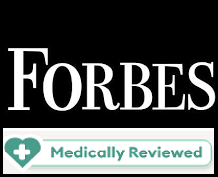Tagged: “Self-Forgiveness”
When “forgiveness” is not forgiveness
We recently did an Internet search in which we typed in the term “forgiveness in the news.” On the first page there were 13 entries. Of those 13, 12 were about “student loan forgiveness.” This is a term that has been used for years within the media. We at the International Forgiveness Institute would like to clarify an important issue. “Student loan forgiveness” is not the correct term for the following reasons:

Image by Pexels.com
- To forgive means that the one forgiven has done something morally wrong, but the students did not act unjustly as they engaged in the proper procedures to secure those loans.
- There is a difference between a legal pardon and forgiveness. When there is legal pardon, there is mercy shown, in this case by exonerating the students from paying back the loans or at least part of those loans. Yet, the ones exonerating are not personally hurt by the students and so they are not engaging in forgiving the students.
The proper term would be “student loan pardons.” This would be more accurate and not lead people to inadvertently distort the meaning of the word “forgiveness.”
Matthew Perry, Shame, and Self-Forgiveness
For many people, Matthew Perry was most well known as the fun-loving, affable, charming Chandler Bing from the iconic 90s sitcom ‘Friends’. As with all people who live their lives in front of an audience, there is always a more complex story and this was no different for Matthew Perry, who tragically passed away recently. Thankfully, he sought to address his personal and relational struggles with honesty and courage and was not afraid to share that journey with others.

Image from Pexels.com
In the aftermath of his premature death, the New York Times posted a guest essay by Heather Havrilesky in which she reflected on some excerpts from Perry’s autobiography that addressed his experience of shame, self-forgiveness, and how his journey of self-forgiveness can be a pathway to becoming more forgiving and compassionate with others.
Havrilesky reflects in the article that Matthew Perry seems to feel a constant sense of shame that he just cannot shake:
In fact, the one person Mr. Perry can’t seem to forgive, at least for a majority of his book, is himself. He casts himself as the person who deserves blame for everything that happens.
She goes on to propose that many of us struggle with a similar dynamic of shame and self-loathing and that we would do well to walk the path of self-forgiveness so that we may find peace and be able to extend that peace to others around us. As she states elsewhere in her essay:
[W]hen you find forgiveness inside your own heart, suddenly, it’s everywhere else as well.
Be sure to read and share the essay as an invitation to experience the healing that self-forgiveness offers!
What is one major difference between forgiving other people and forgiving yourself?
Forbes: Forgiveness has “Immense Benefits”
Forbes Magazine is undeniably one of the most highly read news publications in the world. With 49 global editions licensed in 83 countries and printed in 28 languages, it reaches more than 140 million people worldwide on a monthly basis through direct subscription and its website.
Now the 105-year-old publication has teamed up with medical experts to tout the “immense benefits” of forgiveness on both mental and physical health in an article titled “Forgiveness: How to Forgive Yourself and Others.” It was published on Aug. 31, 2022, and received the coveted Forbes Health Advisory Board seal of approval.

“The benefits of forgiveness greatly outweigh holding a grudge, and can affect both mental and physical health in profound ways,” according to the article. “While forgiveness may feel impossible in certain circumstances, forgiveness experts—yes, this is a real field of study—say that forgiveness can be learned no matter how great the offense. Even if the person you have the hardest time forgiving is yourself, this too, they say, can be learned.”
The Forbes article relies extensively on the work of Dr. Robert Enright and calls him “a pioneer in the scientific study of forgiveness” and “a leading expert on forgiveness.” Dr. Enright is a professor of educational psychology at the University of Wisconsin-Madison and co-founder of the International Forgiveness Institute who last year was awarded the 2022 American Psychological Foundation Gold Medal Award for Impact in Psychology.
“As you can see, all the ways of practicing forgiveness as well as its benefits aren’t really about the person who wronged you; it’s about yourself,” according to the Forbes article. “Forgiveness isn’t easy, but it can be done. When you commit to putting it into practice, your mental and physical health will both be better for it.”
“Clearly forgiveness has immense benefits.”
Forbes Magazine
Here are the scientifically-demonstrated benefits of forgiveness cited in the article:
Mental Benefits of Practicing Forgiveness
- You experience less anxiety when you forgive
- Inability to forgive and depression can be linked
- You feel more hopeful and empowered when you forgive
- You’re less likely to hurt others
Physical Benefits of Practicing Forgiveness
- Forgiveness is good for your heart
- It’s associated with better sleep
- Forgiving supports the immune system
In addition to lauding the benefits of forgiveness, the article includes a helpful list of “10 Ways to Practice Forgiveness for Yourself and Others.”
Read the full Forbes Magazine article.
When I examine the effects of the injustice that happened to me, I get angry at myself for not realizing the connection all these years between what happened to me back then and my built-up anger and fatigue now. Should I forgive myself for missing all of this?
We forgive ourselves when we do moral wrong, when we break our own standards. It seems to me that you were not acting unjustly at all. You simply did not know the connection between the past hurts against you and your challenges at present. This is the case for very many people because forgiveness, current effects, and past trauma rarely are discussed in contemporary society. I recommend that you practice gentleness toward yourself rather than forgive yourself.
After all, would you forgive yourself for not knowing other issues that are hidden from most people in society? In the 1940’s for example, people did not have the precise knowledge of the connection between cigarette smoking and certain health problems. Those people who were smoking back then were not saying to themselves, “The science shows that I am harming myself in very specific ways. I will continue to smoke anyway.” This would not have been the case for a very large part of the population.
It is similar now with the links among past trauma, current effects such as anger and fatigue, and forgiveness. Not knowing is not necessarily an injustice and so I think you can go in peace……and start the forgiveness process now if you are ready. In some cases, we deny reality and choose to not know what is good. This issue is different from yours and this example would suggest that self-forgiveness would be appropriate as a person keeps pushing away what should be known as morally good.



